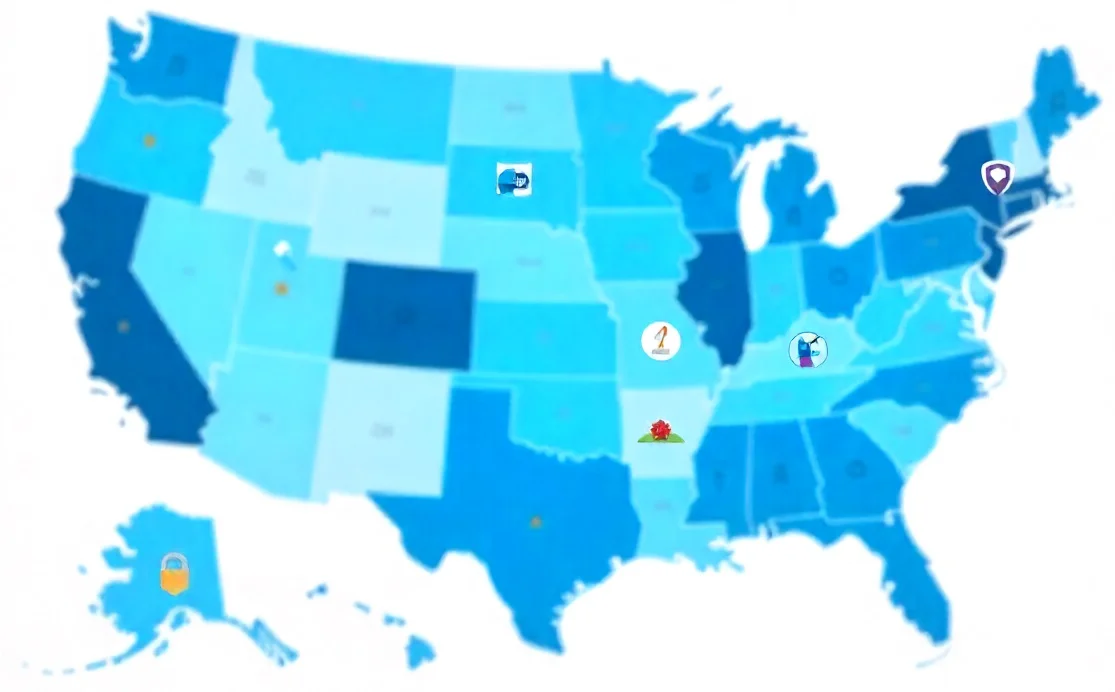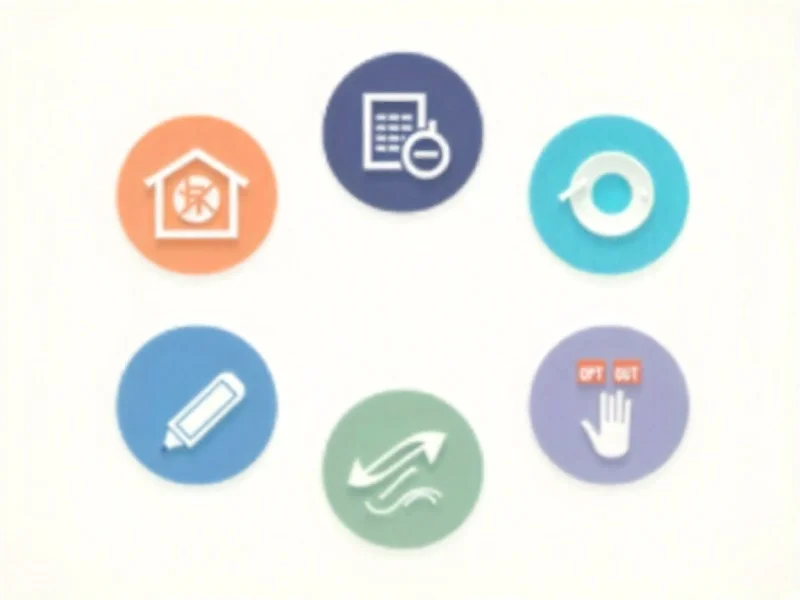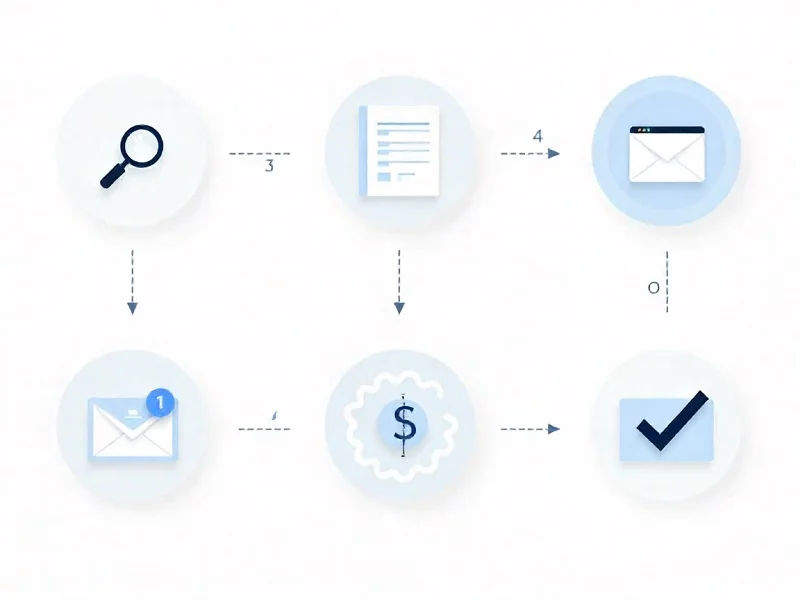Your personal info is more valuable and at risk than ever. Digital life shapes our daily routines. Knowing how to protect your data is key to keeping your identity and money safe.
This year, the digital world changed a lot. Eight new data privacy laws started in different states. Delaware, Iowa, Nebraska, and New Hampshire began on January 1st. New Jersey joined on January 15th.
Tennessee made its law effective on July 1st. Minnesota followed on July 15th. Maryland’s law will kick in on October 1st. These laws add strong protections across the country.
Today, you have clear rights over your data. You can ask for, fix, delete, and control your personal info. Whether you’re shopping online or on social media, businesses must listen to your choices and be open about their actions.
Understanding the Current Privacy Law Landscape in 2025

The United States has many privacy laws that affect your data. Unlike some countries, America has a mix of laws. This means your privacy rights depend on where you live and the services you use.
At the federal level, laws protect different types of your personal info. The Children’s Online Privacy Protection Act (COPPA) helps if you’re under 13. The Health Insurance Portability and Accountability Act (HIPAA) looks after your medical records. The Gramm-Leach-Bliley Act (GLBA) keeps your financial info safe.
Other federal laws include the Fair Credit Reporting Act (FCRA) for credit data and the Family Educational Rights and Privacy Act (FERPA) for student records. The Federal Trade Commission (FTC) watches over your privacy. They can act against companies that misuse your data.
State privacy bills are changing the game. Over 20 states have passed laws that give you broad privacy rights. These laws share common goals but have different rules.
A legislative tracker shows a big jump in 2024 and 2025. States keep introducing new privacy laws and strengthening old ones. This creates both chances and challenges for you.
The state laws usually have these main points:
- They require companies to be clear about how they collect your data
- They give you the right to control how businesses use your info
- They make companies follow your privacy requests
- They ask for clear privacy policies
- They have penalties for companies that break your rights
This complex system means you need to know which laws apply to you. Your location, the companies you deal with, and the data involved all matter. Some businesses must follow many state laws if they serve customers in different states.
The patchwork approach has both good and bad sides for you. You might have strong protections in some areas but not others. Knowing this landscape helps you understand your rights and how to stand up for them when companies don’t respect your privacy.
Essential Consumer Privacy Rights You Can Exercise Today

Today, you have real rights to protect your data. Most states’ laws give you key rights to control your personal info. You can use these rights now to take back control of your data.
Your right to access lets you get a copy of all data companies have on you. This includes things like what you’ve looked at online and what they think you might buy.
The right to delete lets you ask companies to erase your info. While there are some exceptions, this right helps you control your online presence.
Your right to correct helps fix wrong info about you. This stops bad info from hurting your chances in life.
The right to portability lets you get your data in a format you can use. This makes it easier to move your info to new services or keep it safe for yourself.
Maybe most importantly, your right to opt-out lets you say no to data use. You can stop targeted advertising and limit automated decision-making that might affect you.
- Access to all personal data collected about you
- Deletion of your information from company databases
- Correction of inaccurate personal details
- Data portability in machine-readable formats
- Opt-out from data sales and profiling
These rights cover many types of personal info. This includes things like your contact details and sensitive data like biometric information. Some states, like Minnesota, offer even more rights.
But, not all states protect you the same way. For example, Iowa doesn’t have some of these rights. Knowing your state’s laws is key to using these rights.
The idea of data minimization also helps you. It means companies only collect what they really need. This makes your data safer.
These rights are real and you can use them today. The important thing is knowing you have the power to shape how companies use your data.
How to Request Access to Your Personal Data
Knowing how to ask for your personal data is key to protecting your privacy. This right is now a standard in many privacy laws. Most companies must answer your request within 45 days, but some can ask for more time.
To start, find the company or service you want to ask. Look for their privacy policy or a consumer rights page. Many have special forms or email addresses for privacy questions.
Be clear about what data you want. You can ask for all data, certain types, or how it’s shared with others. Being specific helps companies follow the rules better.
Next, you need to prove who you are. Companies might ask for email confirmation, login details, or other identifying info. This keeps your data safe from unauthorized access.
They must give you your data in a way you can easily get it. This is usually a file you can download or a secure online spot. If they say no, they must explain why, like if the law says they can’t or it’s too hard.
Data brokers are a big reason why you need to ask for your data. These companies collect and sell personal info from many places. Now, many states require data brokers to make it easy for you to opt out.
Here’s what to include in your request:
- Your full name and contact info
- The data types you want to see
- Any needed verification documents
- Why you’re asking for the data
- How you’d like to get the data
Modern privacy laws make these steps the same everywhere. Companies with agreements with other companies must also give you access to shared data. This lets you see more of the data world that’s often hidden.
Global privacy control (GPC) signals can also help. These signals tell websites your privacy wishes, making it easier to get data. But, you might need to ask directly for data from specific places.
Knowing about liability risks helps companies answer your requests fast. They don’t want to face big fines for not following the rules. This means they’re more likely to help you with your privacy rights.
Step-by-Step Guide to Deleting Your Personal Information

Starting to delete your digital footprint is easy once you know how. You need to plan and understand your rights under state privacy laws. Laws like California’s CCPA and CPRA, Colorado’s CPA, and Connecticut’s CTDPA let you ask for your data to be deleted.
First, find out who has your data. This includes social media and online stores. Also, look at data brokers, ad networks, and makers of connected devices.
- Create a list of all places your data is stored. This includes subscriptions, loyalty programs, and devices at home or work.
- Find privacy policies for each place on your list. Look for “Your Rights,” “Consumer Requests,” or “Data Deletion” to find how to ask for deletion.
- Get ready your ID documents before you ask for deletion. You’ll need government IDs, account info, or age checks.
- Send in your deletion requests through the right channels. This might be online forms, emails, or phone numbers in privacy policies.
- Tell them what to delete in your request. Some places let you choose what data to delete, keeping some for services.
It’s important to know what you can delete. Companies can keep your data for many reasons. These include finishing transactions, following laws, detecting fraud, or keeping systems safe.
Delaware’s Personal Data Privacy Act and Florida’s new rules are similar. They say companies must explain why they keep data and only keep it as long as needed.
Deleting data from connected devices is tricky. This includes smart homes, fitness trackers, and cars. You might need to reset devices or contact makers to delete data fully.
Facial recognition systems need special care when deleting data. You must ask for the removal of biometric data and any photos or videos of you. This is key because companies use facial recognition for security and age checks.
Companies have to answer deletion requests quickly, usually within 30 to 45 days. They must confirm when they’ve deleted your data. It might take longer if they need to tell others to delete your data too.
Keep records of all your deletion requests. Save emails and letters for proof. This is useful if you need to follow up or report issues to authorities.
Some data might stay in backups even after deletion. Companies should tell you how long they keep backups and when they’ll remove your data completely.
Opting Out of Data Sales and Targeted Advertising
Understanding your rights to control data starts with knowing how to opt out. Most states now let you stop companies from selling your data or using it for ads. This is a key way to protect your privacy in 2025.
Universal opt-out tools have changed how you can use these rights. You can turn on Global Privacy Control (GPC) in your browser. This tells websites you don’t want your data sold or used for ads.
But, signals alone don’t fully protect you. Many sites need you to visit their pages to opt out. Look for “Do Not Sell My Personal Information” links in their footers or privacy policies.
States have different rules for opting out of data sales and ads. Maryland (MODPA) bans selling sensitive data. Iowa (ICDPA), Kentucky (KCDPA), and Minnesota (MCDPA) let you opt out with notice.
Other states have their own rules. Montana, Nebraska, and New Hampshire each have their own opt-out steps. Oregon and Rhode Island have strict opt-out rules too.
New Jersey (NJDPA) has a special rule. Its Division of Consumer Affairs makes sure opt-out works the same everywhere.
For full protection, opt out with big ad networks too. Google and Facebook make detailed profiles that need separate opt-outs. They have special pages for your ad preferences.
Opting out doesn’t mean no ads. You’ll see ads, but they won’t be as personal. Ads will be based on what you’re looking at, not your behavior.
Remember, you need to keep up with opt-outs. You might have to do it again when you use new services or when companies change their systems. Many states make it easy to opt out.
Keep records of when and where you opted out. If companies ignore your wishes, tell your state’s attorney general. They can take action.
Protecting Your Sensitive Personal Information
In 2025, state laws in the US will better protect your personal data. This is because some information is more risky if it falls into the wrong hands. Knowing about these protections helps you decide who to share your private info with.
Some data is considered very sensitive. This includes your Social Security number, driver’s license, and bank account info. Even biometric data like fingerprints and voice prints get extra protection.
Health records and location data are also sensitive. So are details about your sexual orientation or religious beliefs. States like Tennessee and Virginia have made these protections stronger.
Maryland leads in protecting sensitive data. Companies there must show they really need your sensitive info. Maryland also bans selling your sensitive data under any circumstances.
Other states like Maine and New York have similar rules. They require your consent before collecting your sensitive data. You must agree before companies can use your info.
Children’s data is always considered sensitive. Laws in all states treat data from kids under 13 as extra-protected. Teenagers aged 13-17 also get extra privacy help.
Here are ways to keep your sensitive info safe:
- Read privacy policies before sharing sensitive data
- Only share sensitive info when you really have to
- Be careful with biometric systems like facial recognition
- Check which companies have your sensitive data
- Remove your data from services you no longer use
Companies handling your sensitive data must be extra careful. They need to check for risks and tell you how they use your data. The International Association of Privacy Professionals (IAPP) helps guide these rules.
Parents have more rights over their kids’ sensitive data. You can ask for your child’s data to be deleted. You can also stop companies from selling or using your child’s data for ads. These rules help keep kids’ privacy safe in our digital world.
Studies show people want these stronger privacy rules. Keeping an eye on how your sensitive data is used helps you stay in control.
Managing Data Broker Access to Your Information

Your personal info moves through a big network of data brokers. They make money by selling detailed profiles about you. They get your data from many places like public records and social media.
Data brokers collect your info without asking you. They work secretly, making them a big privacy risk. It’s key to know how to control their access to your data.
First, find out who the big data brokers are in your area. Some states list them. Privacy groups also have lists. Bloomberg Law and others track new rules.
Take action by asking what data they have on you. Then, ask them to delete it if you don’t want it. Many data brokers have online forms for this.
Here are some steps to follow:
- Research state data broker registries in your location
- Submit access requests to understand what information they hold
- File deletion requests for unwanted personal data
- Document all interactions and confirmations
- Set calendar reminders for periodic opt-out maintenance
Remember, opting out is not a one-time thing. Data brokers can get your info again. So, you must keep checking your opt-out settings.
It’s harder because data brokers share info. Taking your data off one doesn’t remove it everywhere. Start with the biggest ones, as they have the most info.
Some services help you opt out for many at once. But, make sure they’re not collecting your info. Laws like GDPR are making U.S. states protect your privacy more.
Keep records of your dealings with data brokers. Save emails about deletions and opt-outs. This helps if you need to report problems or show they broke privacy laws.
Privacy Controls for Connected Devices and IoT

Your smart home devices and fitness trackers collect personal data. They learn about your daily habits and even your heart rate. But, many IoT systems have weak security and share data widely.
First, make a list of all your connected devices. This includes smart speakers and security cameras. Don’t forget about smart TVs and connected vehicles.
Check each device’s privacy settings through their apps or web interfaces. These settings are often hidden. Turn off features that track your location when not needed.
Be careful with devices that have cameras or microphones. They record and store data in the cloud. Think if the convenience is worth the privacy risks.
Here are key privacy controls for your devices:
- Turn off voice recording features when not needed
- Disable location tracking for devices that don’t require it
- Choose local processing over cloud storage when available
- Regularly update device firmware and software
- Use strong, unique passwords for each device account
Network-level protections offer extra security. Set up your router to block certain data or use a VPN. These steps protect all your devices at once.
New privacy laws will start in 2024 and 2025. They will give you more control over your IoT data. These laws require companies to design privacy into their products.
When you stop using devices, delete your data properly. Reset the device, delete accounts, and tell manufacturers to remove your info. Just throwing away devices can expose your data.
Children’s Privacy Rights and Parental Protections
Your child’s personal info needs top protection today. Children’s privacy rights are strong, knowing kids need extra care. This is because they’re young and don’t fully understand data risks.
The Children’s Online Privacy Protection Act (COPPA) helps kids under 13. It makes companies ask for parent permission before collecting personal info. This includes names, addresses, and online tracking.
In 2025, state laws will add more protection for kids’ data. All new laws will treat kids’ data as very sensitive. This means companies must be extra careful with it.
States are also protecting teens more, from 13 to 17. New Jersey and Maryland are leading the way. They make companies get clear consent before using teens’ data for ads or sales.
Student data privacy is a big issue in schools. The Family Educational Rights and Privacy Act (FERPA) helps protect school records. But, schools use tech that tracks students more than ever.
Schools use cameras, record lessons, and collect biometric data. You have the right to know what data schools collect. Many schools ask for your okay before using biometric tech like scanners.
Ed tech platforms collect a lot of data, not just grades. They might have health info, mental health data, and even genetic data. School nurses’ records are also protected.
As a parent, you can do a few things to protect your child’s privacy:
- Check privacy settings on digital platforms your child uses
- Look at social media, gaming, and educational apps regularly
- Read privacy policies when signing up for new services
- Turn off data collection on devices when not needed
- Ask companies what data they have on your child
You can also ask for data corrections and deletion. Medical and reproductive data need extra care under laws.
When signing up for new services, watch for age checks, parental controls, and data policies. These affect how long data is kept and your control over it.
Workplace Privacy Rights for Employees
Workplace privacy for employees covers many areas. This includes federal, state, and industry rules. Even with broad exemptions for work data, you have rights through laws and new protections.
Remote work and digital tools have changed how employers watch you. They use many ways to monitor you:
- Email and internet tracking on company networks
- Keystroke monitoring and productivity checks
- Video cameras in the workplace
- AI systems checking your work
- Biometric data for security and time tracking
Monitoring is more common during work hours and on company devices. Many states limit the most invasive monitoring. This is true for constant watching beyond work tasks.
Jobs in finance need extra privacy rules under the Gramm-Leach-Bliley Act. If you handle banking or insurance data, your employer must protect it. This includes your personal info when it’s mixed with work tasks.
Jobs that deal with money need special care. Your employer must teach you how to keep this data safe.
AI and machine learning are changing work decisions. They affect hiring, evaluations, and career moves. You have rights about these systems:
- Knowing how AI uses your data
- Understanding what data goes into AI decisions
- Challenging AI-driven decisions
- Getting explanations for AI actions
Social media is a big privacy issue at work. Employers watch your online actions and might make work decisions based on them. Many states limit employers’ access to your private social media.
What you do outside work is usually protected. Employers can’t punish you for lawful activities outside work. This includes your online activities and use of digital services.
Work vehicles raise privacy questions. GPS and driving monitoring must follow state rules. Your employer should tell you when and how they collect this data.
Some industries have stricter privacy rules. Healthcare, education, and government jobs often have more rules than regular businesses.
Enforcement Mechanisms When Your Rights Are Violated
When companies break your privacy rights, you need to know how to hold them accountable. Most state privacy laws let only the attorney general enforce them. This means you can’t sue companies yourself in most states.
But, you’re not out of luck. State attorneys general are getting better at looking into privacy complaints. They can take action against companies that break the rules.
- Companies get 30 to 90 days to fix their mistakes
- If they don’t, they face fines
- Fines can be up to $7,500 per violation in many places
- There are bigger fines for intentional or child data violations
To report privacy issues, document how companies have not respected your rights. This includes ignoring your requests, using data after you’ve opted out, or not securing it properly.
Most state attorneys general have online forms for privacy complaints. They have special units for handling these issues. The Federal Trade Commission also helps, mainly with federal laws like COPPA.
When you file a complaint, include these important details:
- When and how the privacy issue happened
- All your talks with the company about your requests
- Proof of harm or possible harm from the issue
- Any response from the company or lack thereof
Different states have different rules for when they can take action. Laws affecting 100000 consumers are common. But, Maryland and New Hampshire have lower thresholds at 35000 consumers for some rules.
Keep a detailed record of all your talks with companies about privacy. This helps agencies spot patterns of not following the rules. Even though you can’t sue yourself, successful actions by the attorney general can help everyone.
The FTC can fine companies a lot and make them create detailed privacy plans. Sometimes, companies must fix specific problems for the people they affected.
Conclusion
Your privacy rights in 2025 are a strong tool for keeping your personal info safe. The rules now cover many businesses. This includes those with operations in multiple states and those with a lot of customers.
In Florida, big companies with $1 billion in sales must follow strict rules. These rules help keep your info safe. They make sure companies are open about how they use your data.
Protecting your digital privacy is an ongoing task. New laws and rules are always coming. You can stay safe by using your rights, checking privacy policies, and keeping up with news.
Choosing companies that care about your privacy is important. This helps create a safer digital world. By doing this, you help make sure your data is protected.
Begin using these tips now. Your personal info is as valuable as any other asset. This guide gives you the tools to handle privacy in 2025.
